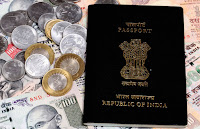ඇතැම් අයදුම් පත් ප්රතික්ෂේප වීමට හේතුව ව්යාජ ලිපි ලේඛන ඉදිරිපත් කිරීම වන අතර අනෙක් බොහෝ අයදුම් පත් ප්රතික්ෂේප වන්නේ හුදෙක් සුළු වැරදි, නොදැනුවත් භාවය, නොගැලපෙන බව සහ වරදවා වටහා ගැනීම යන සුළු කරුණු නිසාවෙනි.
විවිධ වීසා ඛාණ්ඩ යටතේ ඔස්ට්රේලියාවට පැමිණීම සඳහා ඔස්ට්රේලියානු ආගමන හා දේශ සීමා ආරක්ෂණ දෙපාර්තමේන්තුව වෙත දහස් ගණන් ලැබෙන අයදුම් පත් අතරින් බොහෝ ප්රමාණයක් සාර්ථකත්වයට පත්වන අතර තවත් දහස් ගණනක් ප්රතික්ෂේප වෙයි.
ඇතැම් අයදුම් පත් ප්රතික්ෂේප වීමට හේතුව ව්යාජ ලිපි ලේඛන ඉදිරිපත් කිරීම වන අතර අනෙක් බොහෝ අයදුම් පත් ප්රතික්ෂේප වන්නේ හුදෙක් සුළු වැරදි, නොදැනුවත් භාවය, නොගැලපෙන බව සහ වරදවා වටහා ගැනීම යන සුළු කරුණු නිසාවෙනි.
ව්යාපාරික, සහකරු, පවුල්, ශිෂ්ය සහ රැකියා වීසා සඳහා අයදුම් කිරීම තරමක් සංකීර්ණ කටයුත්තක් වන අතර ඒ අනුව එය නිවැරදිව සිදු කිරීමට වග බලා ගත යුතුය.
මේ හේතුවෙන් එම පුද්ගලයන්ගේ ඉතා විශාල මුදල් ප්රමාණයක් මෙන්ම කාලයද නාස්ති වේ.
එනිසා, ඔස්ට්රේලියාවේ වීසා සඳහා ඔබ අයදුම් කිරීමට අපේක්ෂා කරනවානම් පහත කරුණු 10 අතිශය වැදගත් බව මතකයේ තබා ගන්න.
01. සාක්ෂි ඉතා වැදගත්ය.
රැකියා, පවුල් සහ ව්යාපාරික වීසා සඳහා අයදුම් කිරීමේදී බොහෝ සාක්ෂි සැපයීමට ඔබට සිදුවේ.
ඔබගේ සහකරුවා අතර ඇති සම්බන්ධය ඔප්පු කර පෙන්වන සාක්ෂි, රැකියා සඳහා සුදුසුකම් මෙන්ම රැකියා ඉතිහාසය ඔප්පු කිරීමට සාක්ෂි සහ දේපළ පිළිබඳ සාක්ෂි ඒ අතර ප්රධාන වේ.
ඔබගේ අයදුම් පතත් සමග දක්වන සෑම කරුණක්ම සනාථ කිරීමට ඔබට සාක්ෂි සැපයීමට හැකි නම් එය අතිශයින්ම වැදගත් වේ. නමුත් එම සාක්ෂි වලංගු වීමද අවශ්යය.
ව්යාපාරික වීසා සඳහා නම් අවශ්ය සියලු ආදායම් - වියදම්, බැංකු වාර්තා, රිසිට් පත් සහ අත්යවශ්ය සියලු ගනුදෙනු ඔප්පු කිරීමට අදාළ ලිපි ලේඛන සැපයිය යුතුය.
රැකියා වීසා සඳහා නම් ඔබගේ වැටුප් වාර්තා, සේවක අර්ථ සාධක ගෙවුම් පත්, පත්වීමේ ලිපි, රැකියාවට අදාළ වැදගත් සියලු ලිපි ලේඛන ද සහකරුගේ හෝ පවුලේ වීසා සඳහා නම් අදාළ සම්බන්ධකම් සනාථ කිරීමට සැපයිය හැකි සියලු වලංගු සාක්ෂි ඉදිරිපත් කළ යුතුය.
2. ස්ථාවර විය යුතුය.
ඔබගේ අයදුම් පත සහ ඒ සමග ඇමුණු ලිපි ලේඛන පරීක්ෂා කරන අතරතුර ආගමන දෙපාර්තමේන්තුව විසින් ඔබගේ පෙර වීසා සහ රජයේ වාර්තා යන සියල්ල එකට පරීක්ෂා කර බලයි.
එහිදී නොදැනුවත් භාවයෙන් හෝ වැරද්දක් සිදු වුවා නම් එය නොගැලපීමක් ලෙස සැලකෙන අතර එම හේතුවෙන් ඔබගේ අයදුම් පත්රය සලකා බැලීමේ කාලය දික් වන අතර ඔබට අමතර මුදලක්ද වැය වීමට ඉඩ තිබේ.
ඔබ එක් වීසා ඛාණ්ඩයක සිට තවත් වීසා ඛාණ්ඩයකට හෝ එම වීසා ඛාණ්ඩයම දික් කිරීමේදී මේ තත්ත්වය බරපතල ලෙස බලපායි.
3. නිවැරදි විය යුතුය.
නිරවද්ය භාවය අතිශය වැදගත් කරුණක් ලෙස වීසා අයදුම් කිරීමේදී සළකයි.
වීසා අයදුම් කිරීමේදී බොහෝ අයදුම් කරුවන් සුළු සුළු වැරදි නිරතුරුවම සිදු කරන බව පෙනී ගොස් තිබේ.
ඔබගේ අයදුම් පතෙහි නිරවද්යභාවය 99%ක්ම ඔබටම මැනීමට අපහසුය. එනිසා අයදුම් කිරීමට මත්තෙන් තවත් අයෙකු ලවා එය පරීක්ෂා කිරීමෙන් බොහෝ සුළු වැරදි හසු කරගත හැකිය.
විශේෂයෙන්ම දින වකවානු මෙහිදී වැදගත් තැනක් ගනී.
4. අවංක වන්න.
ඔබගේ වීසා ක්රියාවලිය අවසන් වන තුරුම අවංකව ක්රියා කිරීමට උත්සාහ කරන්න. යම් හෙයකින් ඔබ වංක ලෙස කටයුතු කර තිබෙන බව හසු වුවහොත් ඔබගේ වීසා ප්රතික්ෂේප වනවා පමණක් නොව ඔබට අනාගතයේදී ඔස්ට්රේලියානු වීසා සඳහා අයදුම් කිරීම තහනම් කිරීමට දෙපාර්තමේන්තුවට අයිතියක් ඇත.
අනෙක් කරුණ නම්, සාක්ෂි සනාථ කිරීම සඳහා ව්යාජ ලිපි ලේඛන යොමු කිරීමද ඉහත ප්රතිපල අත් කර දෙන සිදුවීමකි.
5. හොඳින් සූදානම් වන්න.
ඔබ අයදුම් කිරීමට පෙර ඒ සඳහා හොඳින් සූදානම් වී සියලු ලිපි ලේඛන සහ සාක්ෂි පිළිවෙලින් යුතුව යොමු කිරීම තවත් වැදගත් කරුණකි. එමගින් ඔබගේ අයදුම් පත පරීක්ෂා කරනු ලබන නිලධාරියාට පහසු වන අතර ඔබගේ අයදුම් පතේ පරීක්ෂණ කටයුතු ඉක්මනින් සිදු කිරීමට පිටිවහලක් සපයනු ඇත.
ඇතැම් අයදුම්පත් තැපෑලෙන් යැවිය යුතු අතර ඒවා සඳහා සියලු ලිපි ලේඛන එකට ගොනු කර “Check List” එකක් මගින් ඒවා නිරූපණය කිරීම තවත් පහසු කටයුත්තකි.
අන්තර්ජාලය ඔස්සේ අයදුම් කිරීමේදීද එය එලෙසින්ම අදාළ වේ.
උදාහරණ ලෙස මුල් පිටපත් වල ඡායා පිටපත් සත්ය පිටපත් බවට සනාථ කර යැවීමට අවශ්ය නම් සනාථ කළ පිටපත් මිස මුල් පිටපත් නොයැවිය යුතුය.
අන්තර් ජාලය ඔස්සේ ලිපි ලේඛන යොමු කිරීමේදී සෑම ලිපි ලේඛනයක්ම අදාළ නමින් ලේබල් කිරීම වඩා යෝග්ය වේ.
6. සාමාජ මාධ්ය ජාල ගිණුම් සහ ප්රසිද්ධ සටහන් වල නොගැලපීම් පිළිබඳ සැළකිලිමත් වන්න.
ආගමන දෙපාර්තමේන්තුව බොහෝ විට ඔබගේ සමාජ ජාල ගිණුම් සහ ප්රසිද්ධ සටහන් පරීක්ෂා කර බලා ඔබ සැපයු තොරතුරු සත්ය දැයි තහවුරු කරගැනීමට ඉඩ තිබේ.
මීට අමතරව ඔබ අධ්යාපනය ලැබූ බව සඳහන් කළ අධ්යාපනික ආයතන වලට පවා අමතා ඒ ඒ සුදුසුකම් නිවැරදි දැයි ද ඔවුන් සොයා බලයි.
එනිසා අයදුම් පත සමග ඔබ සපයන සියලු කරුණු ඔබගේ අනෙක් ප්රකාශන වලින්ද එලෙසම නිරූපණය කිරීමට සෑම විටම වග බලා ගත යුතුය.
7. කාලය සහ අවසන් කාල සීමාවන් පිළිබඳ අවධානයෙන් සිටින්න.
ඔබගේ අයදුම් පත යොමු කිරීමේ අවසන් කාලය සහ අදාළ යොමු කිරීමේ නීති පිළිබඳව දැනුවත්ව සිටිය යුතුය.
ඇතැම් විට අවසන් කාල සීමාව සුළුවෙන් පමා වී යොමු කළ අයදුම් පත් ප්රතික්ෂේප වන්නේ ඔබගේ මුළු උත්සාහයම අපතේ යවමිනි.
8. විස්තර සඳහා ඔබගේ අවධානය යොමු කරන්න.
සපයා ඇති විස්තර සහ උපදෙස් වෙත අවධානය හරි හැටි යොමු නොකිරීමෙන් ඔබගේ අයදුම් පත වැරදි මාර්ගයට යොමු වීමට බොහෝ ඉඩකඩ ඇත.
සෑම විටම ලබාදී ඇති උපදෙස් හොඳින් කියවා අවබෝධ කරගැනීමෙන් අනතුරුව ඊළඟ පියවර වෙත යන්න. යම් ගැටළු සහගත තැනක් හමුවූ විට දෙපාර්තමේන්තුව අමතන්න.
9. ඔබ නිවැරදි වීසා ඛාණ්ඩ යට අයදුම් කරන්න.
මෙය තරමක විහිළුවක් සේ ඔබට සිතිය හැකිය. නමුත් බොහෝ විට එකම අංශයේ විවිධ ඛාණ්ඩ යටතේ වීසා වර්ග කිහිපයක් තිබිය හැකිය.
ඒ අතරින් තමන් හට ගැලපෙන වීසා වර්ගය තෝරාගෙන අයදුම් කිරීම වඩා සුදුසු වේ. උදාහරණයක් ලෙස 485 Skilled Graduation හෝ Visa 485 Post Graduate Visa දැක්විය හැකිය.
10. ලියාපදිංචි ඒජන්තවරයකු පමණක් හමු වන්න.
ඔබ ඔස්ට්රේලියානු වීසා හෝ ආගමන කටයුතු පිළිබඳ නීති රීති පිළිබඳ දැනගැනීමට ඒජන්තවරයකු හමුවී අපේක්ෂා කරනවානම් ලියාපදිංචි ඒජන්තවරයකු පමණක් හමුවන්න.
ඒජන්තවරයකු හරහා වීසා අයදුම් කිරීමේ කටයුතු පහසුවෙන් සහ වේගයෙන් සිදු කිරීමට හැකි නමුත් එය අත්යවශ්යම කරුණක් නොවන බව දෙපාර්තමේන්තුව පවසයි.
Source- http://www.sbs.com.au/yourlanguage/sinhalese/si/article/2016/12/12/osttreeliyaanu-viisaa-sndhaa-aydum-kiriimeedii-atishy-vaedgt-vn-krunnu-10k-sbs?language=si&cx_navSource=related-side-cx#cxrecs_s
 India market - The India market has a young, ambitious population who are becoming increasingly affluent and mobile. This has led to significant growth in the number of Indian nationals seeking to study internationally. All student visa applications from Indian applicants, in addition to applicants from Sri Lanka, Bangladesh, Nepal and Bhutan are assessed at the Mumbai Area Office.
India market - The India market has a young, ambitious population who are becoming increasingly affluent and mobile. This has led to significant growth in the number of Indian nationals seeking to study internationally. All student visa applications from Indian applicants, in addition to applicants from Sri Lanka, Bangladesh, Nepal and Bhutan are assessed at the Mumbai Area Office.












